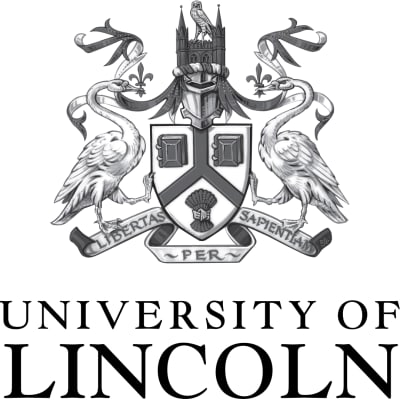
BSc (Hons) Games Computing
University of Lincoln

Key Information
Campus location
Lincoln, United Kingdom
Languages
English
Study format
On-Campus
Duration
3 - 6 years
Pace
Full time, Part time
Tuition fees
Request info
Application deadline
Request info *
Earliest start date
Request info
* late applications will be considered if suitable vacancies remain
Discover Lincoln Wherever You Are in the World
Our webinars, subject masterclasses, question and answer sessions, and student panel talks are a great way to discover what it is like to live and study at the University of Lincoln.
Introduction
The BSc (Hons) Games Computing programme at Lincoln aims to develop the skills and attributes required for roles in the competitive computing sector. The course is designed to help students develop as versatile professionals, capable of thriving in a wide range of post-university employment destinations. Students also have the opportunity to develop skills that lend themselves to the ever-growing, multi-billion pound video games industry.
The course aims to develop a skill set that is applicable to the wider spectrum of the digital sector. Beyond learning how to develop software, students can also develop an understanding of the interaction between the computer and its user, and how to design an engaging experience.
We aim to produce graduates who can adapt to quickly evolving technology and play key roles within the companies at the forefront of those advances. Beyond how to develop technology, a games computing student can also gain an understanding of how to make it engaging, playful, and fun.
The course explores computer science through the specific use-case of games. Students have the opportunity to develop programming skills, alongside specialist modules in topics including games design, 3D graphics, mathematics, and artificial intelligence.
The strong conceptual and methodological grounding in both game design and games development gives Lincoln’s Games Computing course a distinctive edge. Students are encouraged to recognise that software engineering is as important as creative design in the success of computer game products and software applications. The course will also explore the role of playful systems beyond the games industry, looking at how games have been applied to sectors such as education and fitness. While our graduates can target careers in the video games industry, their skills may also be applied to a number of different employment pathways, including systems and development roles in the NHS, automotive industry, education sector, and design roles across multiple industries.
"This information was correct at the time of publishing (July 2023)"
Admissions
Curriculum
How You Study
In the first year of the degree, students have the opportunity to study fundamental areas, including game design, mathematics for computing, programming, and game development.
In the second year, there is in-depth study expected in areas of games computing, such as advanced programming, concept development, user experience design, and artificial intelligence.
As well as completing a games development project in the third year, students can choose from a range of specialist optional modules, including Parallel Programming; Autonomous Mobile Robotics; Image Processing; and Virtual and Augmented Reality.
Full-time or part-time study available.
First Year
- Algorithms and Complexity (Core)
- Game Design (Core)
- Game Development (Core)
- Game Studies (Core)
- Maths for Computing (Core)
- Object-Oriented Programming (Core)
- Programming Fundamentals (Core)
Second Year
- Applied Programming Paradigms (Core)
- Artificial Intelligence (Core)
- Concept Development (Core)
- Game Programming (Core)
- Scalable Database Systems (Core)
- Team Software Engineering (Core)
- User Experience Design (Core)
Third Year
- Graphics (Core)
- Physics Simulation (Core)
- Procedural Content Generation (Core)
- Project (Core)
- Autonomous Mobile Robotics (Option)†
- Big Data (Option)†
- Cross-Platform Development (Option)†
- Cyber Security (Option)†
- Image Processing (Option)†
- Machine Learning (Option)†
- Parallel Programming (Option)†
- Virtual and Augmented Reality (Option)†
† Some courses may offer optional modules. The availability of optional modules may vary from year to year and will be subject to minimum student numbers being achieved. This means that the availability of specific optional modules cannot be guaranteed. Optional module selection may also be affected by staff availability.
How You Are Assessed
The programme is assessed through a variety of means, including in-class tests, coursework, projects, and examinations. The majority of assessments are coursework-based, reflecting the practical and applied nature of games computing science. The weighting given to each assessment method may vary across each academic year. The University of Lincoln aims to ensure that staff return in-course assessments to students promptly.
Accreditations and Affiliations
This course is accredited by BCS, Chartered Institute for IT, and the University is affiliated with the Institution of Analysts and Programmers.
Gallery
Program Outcome
How You Study
In the first year of the degree, students have the opportunity to study fundamental areas, including game design, mathematics for computing, programing, and game development.
In the second year, there is in-depth study expected in areas of games computing, such as advanced programing, concept development, user experience design, and artificial intelligence.
As well as completing a games development project in the third year, students can choose from a range of specialist optional modules, including Parallel programing; Autonomous Mobile Robotics; Image Processing; and Virtual and Augmented Reality.
Full-time or part-time study available.
Scholarships and Funding
Going to university is a life-changing step and it's important to understand the costs involved and the funding options available before you start. For eligible undergraduate students going to university for the first time, scholarships and bursaries are available to help cover costs. The University of Lincoln offers a variety of merit-based and subject-specific bursaries and scholarships.
Several scholarship options are available. Please check the university website for more information.
Program Tuition Fee
Career Opportunities
Our Games Computing programmes aim to equip graduates with the skills necessary for a technical career. Graduates can work across the games industry as developers, tools programmers, artificial intelligence programmers, level designers, mission scripters, games testers, and in many other roles in the wider IT industry. Lincoln graduates have gone on to work for computer games industry giants and other specialist companies in the sector. These include Electronic Arts (EA Games), Criterion Games, Rockstar Games, Sumo Digital, BAE Systems, and Team 17.